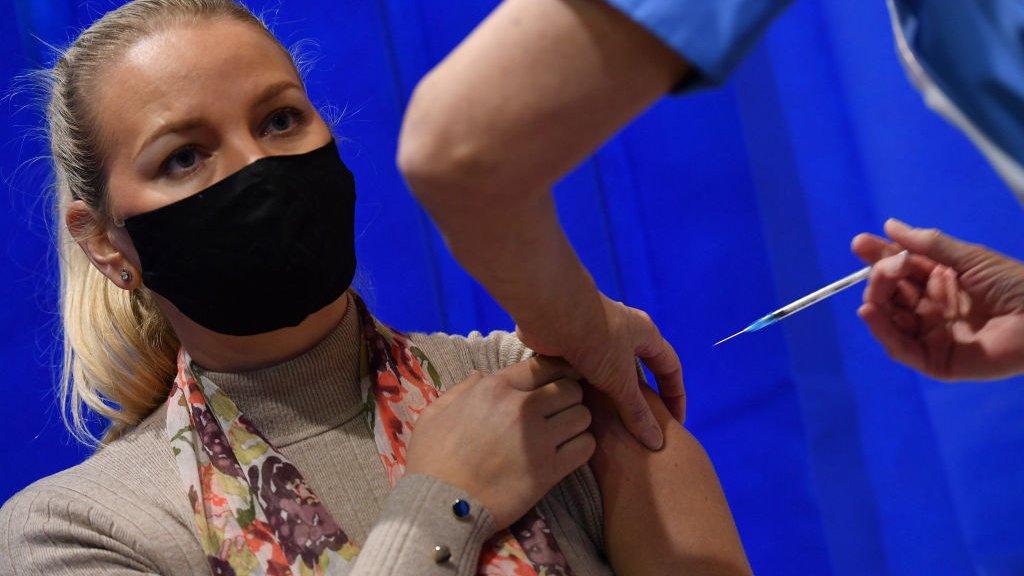Covid vaccine: Wales has delivered 70,000 of 275,000 doses
- Published
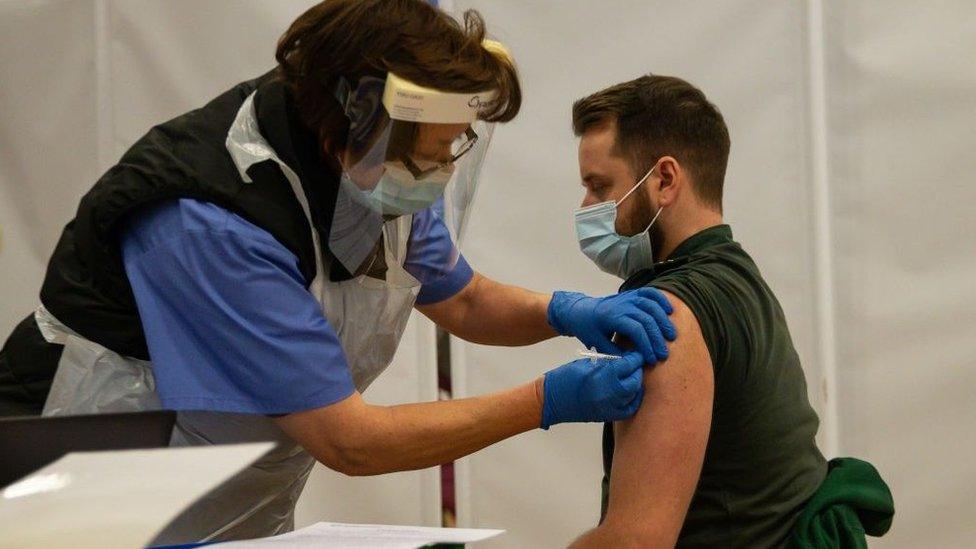
Wales has received 275,000 doses of the two Covid-19 vaccines to deal with the pandemic.
About 70,000 people received a first dose after the first month of the vaccine rollout.
The Welsh Government confirmed it has had more than 250,000 doses of the Pfizer-BioNTech vaccine and 25,000 doses of the Oxford-AstraZeneca jab.
The health minister promised a "really significant step-up" in the roll-out after opponents criticised its speed.
The Pfizer jabs were first administered in early December at seven sites across Wales as part of the UK-wide immunisation programme.
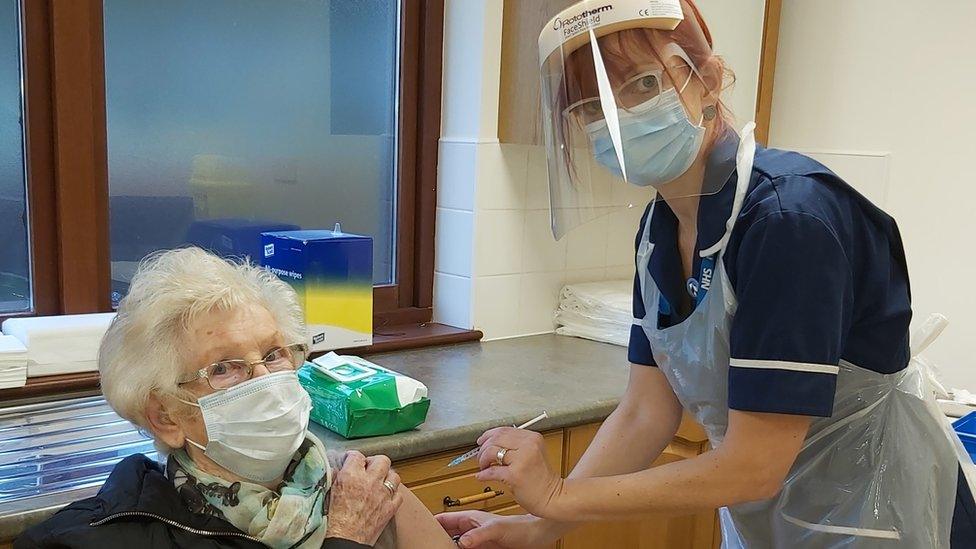
This 82-year-old woman was one of 100 to receives her vaccine at a special clinic in Swansea on Saturday
Approximately 1.6% of people were vaccinated up to 3 January - fewer than all other UK nations.
In England, about 1.9% of the population had received the first dose, while 2.1% of people in both Scotland and Northern Ireland had received their first jab.
The Welsh Government has dismissed criticism it is lagging behind, with health officials saying the new Oxford-AstraZeneca vaccine would help speed up the programme "considerably".

Two full doses of the Oxford vaccine gave 62% protection, a half dose followed by a full dose was 90% and overall the trial showed 70% protection.
The rollout of the Oxford vaccine started on Monday, with 25,000 doses received this week, according to the Welsh Government.
First Minister Mark Drakeford said on Friday that Wales would receive another 25,000 Oxford doses next week and 80,000 the week after that.
When asked how many doses of the Pfizer vaccine Wales had received, he said he could not recall the exact figure but further deliveries had been received "on the 23rd and the 27th of December".
Pressed on a figure, he said: "It's the low hundreds of thousands", adding: "The Pfizer vaccine has particular challenges in terms of the conditions that it's got to be stored in and in parts of Wales that is a very particular challenge because it is a hard vaccine to transport over long distances to relatively scattered and remote communities.
"But the fact that we've got it and the fact that we're able to use more of it than we originally anticipated means we'll be able to accelerate the use of it over the next couple of weeks."
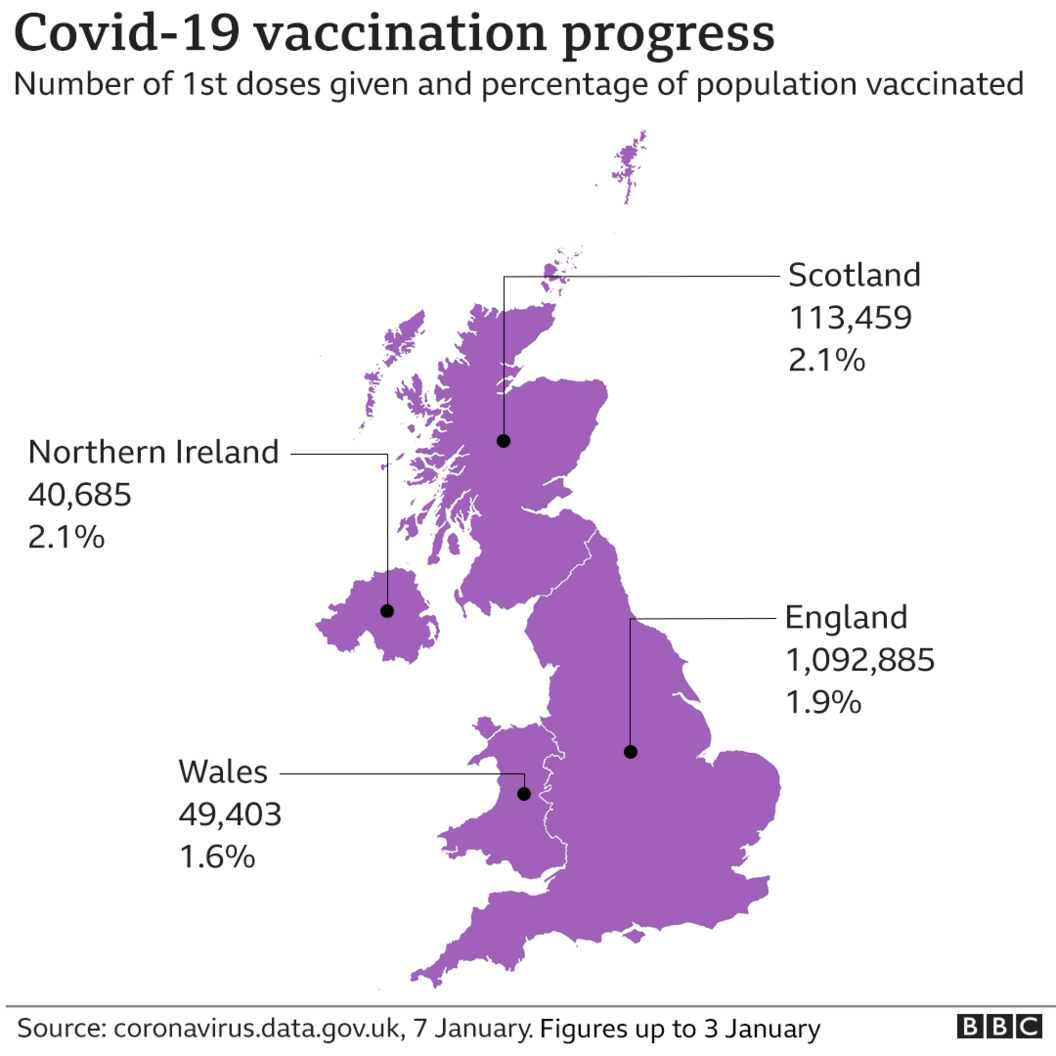
These were the latest comparative weekly totals - daily updates are promised from this week onwards in Wales
On Sunday, the Welsh Government confirmed it had received 25,000 doses of the Oxford-AstraZeneca vaccine in the first week but the quantity would increase, allocated to Wales based on a population share on a weekly basis.
"We are confident in the assurances we have been given that this will increase over the next few weeks to around 100,000 per week," they said.
"We are delivering all the Oxford-AstraZeneca vaccine allocated to Wales directly to GPs, other primary care providers and hospitals as soon as it is available."
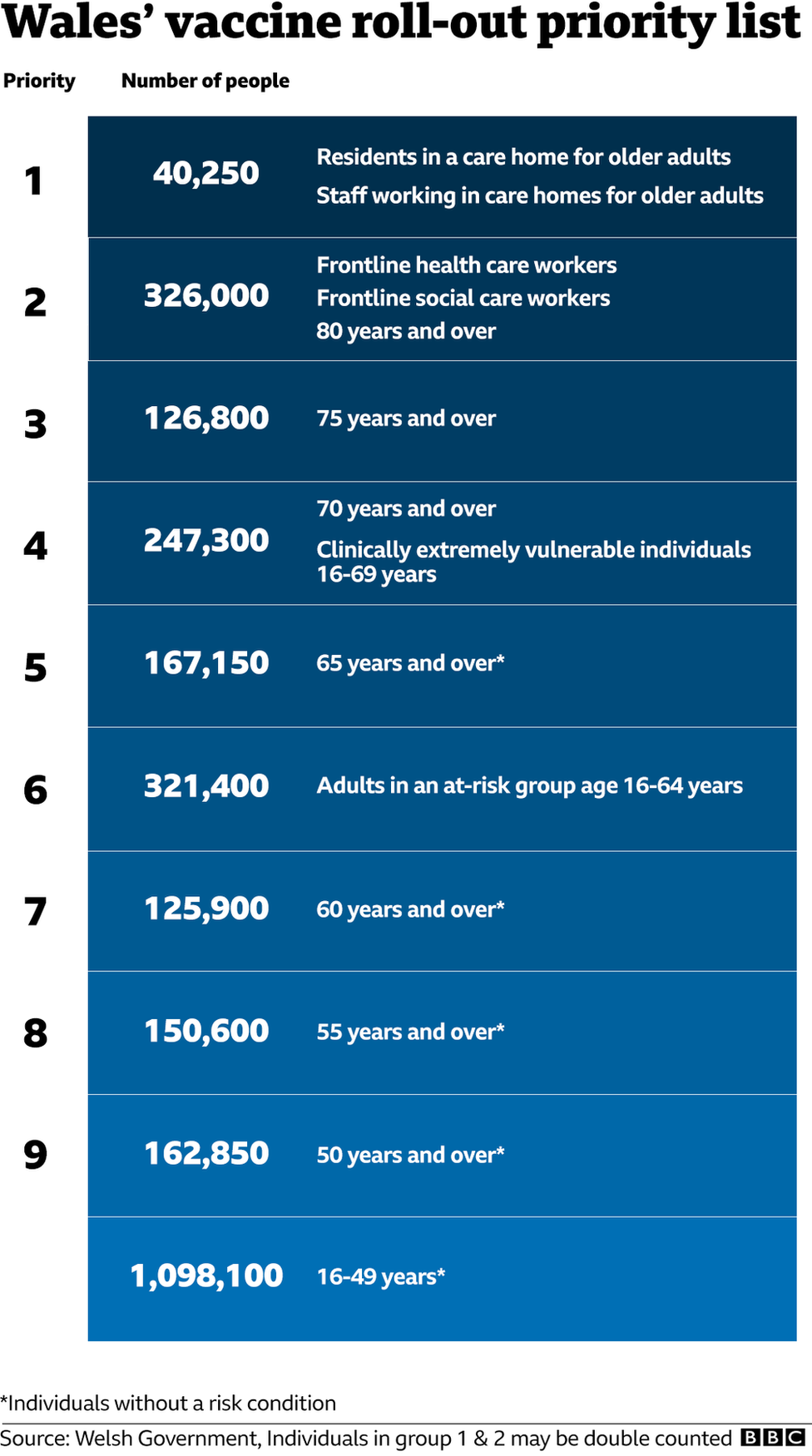
Conservative MP for the Vale of Clwyd, Dr James Davies, said: "We all know that the Pfizer vaccine is difficult to transport and store and needs to be stored at -70 degrees, that's understood.
"But the issue is that actually, if you look at the rest of the UK, including very rural areas, they've managed to deal with it... and it is difficult to see why they haven't been in a position to be organised earlier and to ramp-up the delivery."
Rhun ap Iorwerth, Plaid Cymru's health spokesman, called for transparency: "It is very worrying to find out that we have had in Wales more than 250,000 doses but only a relatively small proportion of that have yet ended up in people's arms, protecting people, because that's what we want to happen."
He has written an open letter to Health Minister Vaughan Gething calling for greater clarity on the vaccine deployment programme, asking for a dashboard of information which would allow the public to track the rollout's progress for themselves, including volume of doses delivered and administered by health board and by the nine priority groups.
Dr Olwen Williams, vice-president for Wales at the Royal College of Physicians, also called on health boards and Welsh Government to publish regular data showing which groups of people have been vaccinated, with patient-facing health workers prioritised over other colleagues.
"I think that would give assurance to people working in the NHS and the population in general, that the programme is progressing as planned," she said.
All data will be published daily from Monday but Mr Gething conceded that Wales, from last week's figures, was "slightly behind on the population share and I'm not getting away from that."
He said the race was not "necessarily against other UK nations" but against the virus.
He also told BBC Radio Wales' Sunday Supplement that, in the next two to three weeks, he expected to see a "really significant step-up in the delivery of the vaccine" as more GP practices and community pharmacies help.
"We're going to get through many more people, giving them significant protection with a first vaccine," he said.
"And that will mean that we're going to be able to prevent most of the avoidable deaths."
It is hoped the Oxford-AstraZeneca vaccine will speed up the process.
By the end of last week, it was being offered to patients aged over 80 at 73 GP practices.
More than 100 are expected to be offering the jabs next week, Mr Gething said, "and then we get into several hundred thereafter and we'll bring community pharmacies on board."
The UK and Scottish governments did not provide the numbers of Pfizer vaccines supplied to England and Scotland. BBC Wales is still waiting for a response from the Northern Irish Executive.
Meanwhile, regular rapid testing for people without coronavirus symptoms will be made available in England.
The Welsh Government said it would evaluate its mass testing pilots in Merthyr Tydfil and lower Cynon Valley, as well as elsewhere in the UK, to inform its approach to community testing.
A spokesman added: "We have announced regular asymptomatic testing of health and social care workers, in education and daily contact testing in South Wales Police.
"A pilot has also started at the Tata Port Talbot site. We are also exploring other opportunities for regular testing to support critical services."
- Published9 January 2021
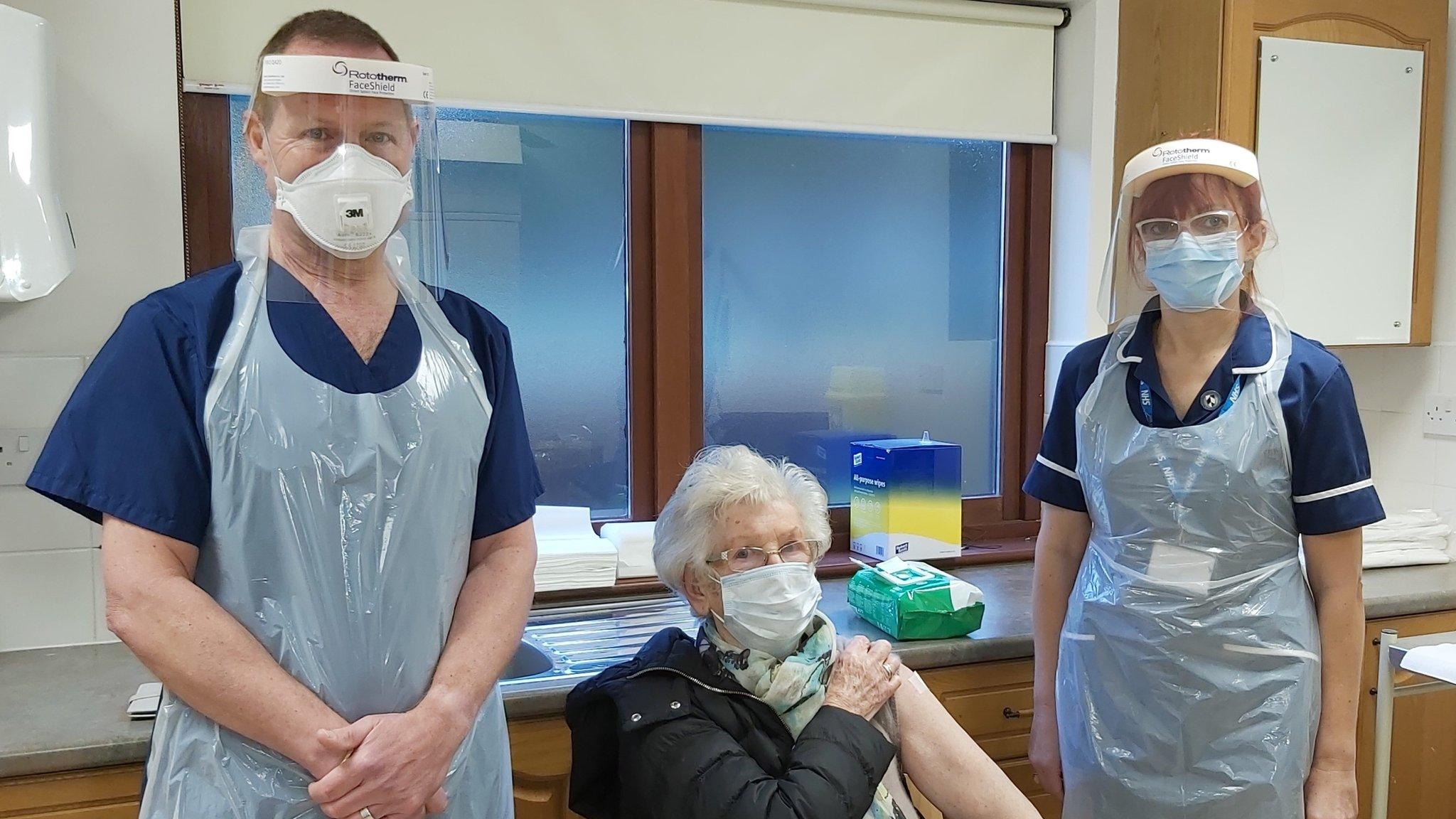
- Published7 January 2021
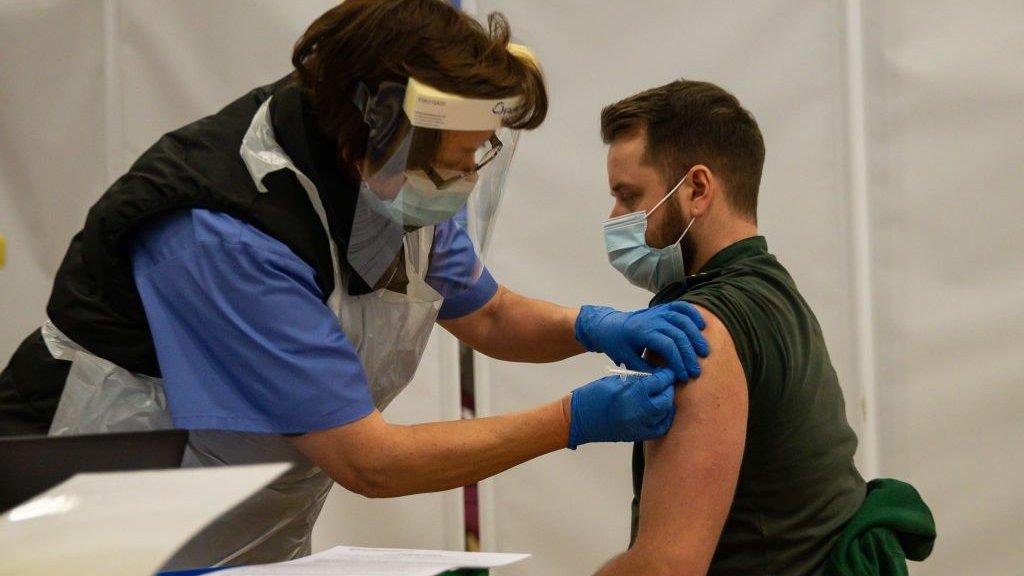
- Published4 January 2021
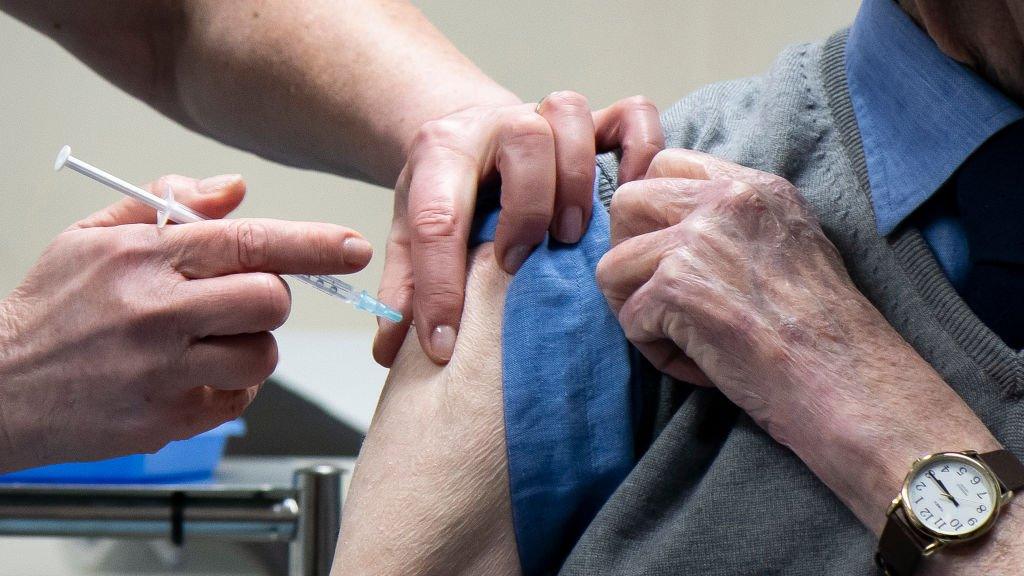
- Published1 January 2021
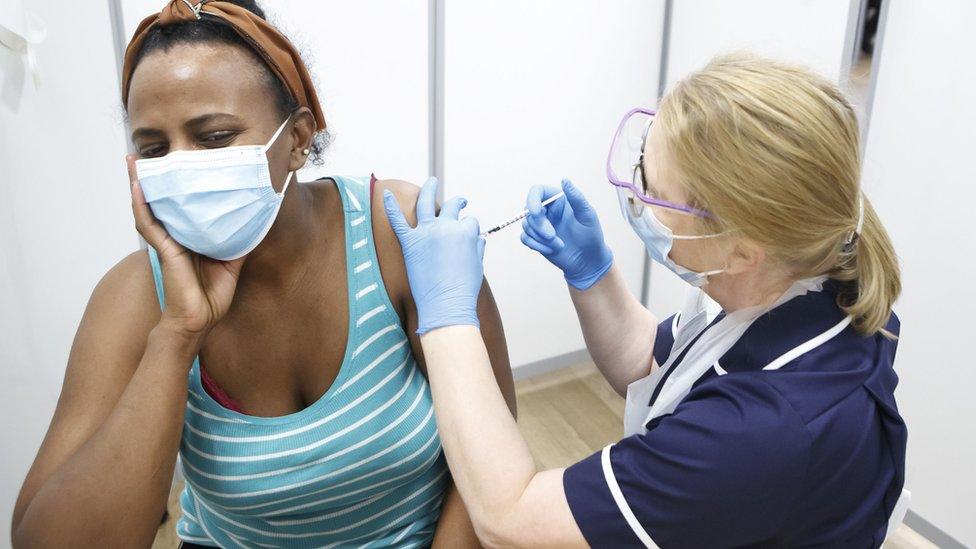
- Published8 December 2020
